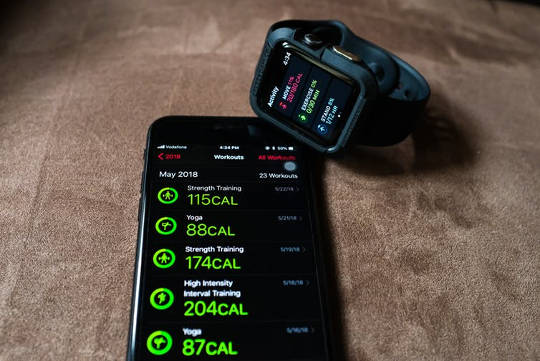- Kayla Zacharias
- Read Time: 2 mins
 A new study finds a strong link between the depression and opioid-related deaths. Nearly one in 12 adults in the US is depressed and opioid-related deaths are skyrocketing.
A new study finds a strong link between the depression and opioid-related deaths. Nearly one in 12 adults in the US is depressed and opioid-related deaths are skyrocketing.
 A new study finds a strong link between the depression and opioid-related deaths. Nearly one in 12 adults in the US is depressed and opioid-related deaths are skyrocketing.
A new study finds a strong link between the depression and opioid-related deaths. Nearly one in 12 adults in the US is depressed and opioid-related deaths are skyrocketing.

Dementia is the is the leading cause of death among Australian women and the third most common cause of death among men. While dementia is not a normal part of ageing, the biggest risk factor for dementia is advancing age. Given ours is an ageing population, estimates suggest dementia cases are set to almost triple by 2050.
 Drinking a daily glass of wine for health reasons may not be so healthy after all, a new study suggests.
Drinking a daily glass of wine for health reasons may not be so healthy after all, a new study suggests.

It was established a decade ago that testing for the presence of HPV – the virus that causes cervical cancer – is a better cervical screening test than the Pap smear. Yet in England, the Pap smear is still used, and it’s costing lives.
 Attempts to replicate classical scientific studies have been failing. These alarming failures have hit psychology, the life sciences and other fields, calling major findings into question. Scientists agree: questionable research practices are rife in many disciplines.
Attempts to replicate classical scientific studies have been failing. These alarming failures have hit psychology, the life sciences and other fields, calling major findings into question. Scientists agree: questionable research practices are rife in many disciplines.

The global obesity crisis shows no signs of abating, and we urgently need new ways to tackle it. Consuming fewer calories and burning more energy through physical activity is a proven way to lose weight, but it’s clearly easier said than done.

Sleep has become widely recognised as playing a really important role in our overall health and wellness – alongside diet, stress management and exercise. Recently, researchers have been learning more about how poor sleep influences our dietary choices, as well as how diet influences sleep quality.

Could your medical treatment one day be tailored to your DNA? That’s the promise of “personalized medicine”. This concept is based on the idea that small genetic differences between one person and another can be used to design tailored treatments for conditions as diverse as cancer and schizophrenia.

This quote from an anonymous patient sums up the experience of millions of sufferers of a health problem that’s rarely recognized or even discussed, yet has a major impact on their lives. Simply put, these people can’t catch their breath.

Physical Education (PE) is often viewed as a marginal subject within the curriculum. And many secondary schools actively reduce PE time to make way for what are deemed more “serious” or “important” subjects.
 More than a quarter of commercial honey brands have potentially been watered down with sugar cane, corn syrup or other products, according to our new analysis of 95 products from local food markets and supermarket shelves.
More than a quarter of commercial honey brands have potentially been watered down with sugar cane, corn syrup or other products, according to our new analysis of 95 products from local food markets and supermarket shelves.

Our Western habitats present us with a very different scenario than that of the original Feng Shui practitioners. Many structures are located on land that the ancient practitioners would never have chosen, and often the structure’s shape and detailing break every classic Feng Shui rule.

It was March 2014 when I received a phone call as I was working in my office. The person on the other end introduced herself as Dr. Linda Houston-Feenstra, chief cardiac nurse of Loma Linda University SACHS Heart Clinic. She said that she has heard about my work on persuasive technology, in particular how it can influence attitude or behavior change in people. She wanted me to assist her with her heart-failure patients.

We’re beginning to treat cancer in a whole new way. Rather than killing cancer cells directly with chemo or radiotherapy, the latest treatments are designed to promote the body’s natural immune control over the disease.
 We’ve known for a long time that certain patients in the intensive care unit recover faster and have better clinical outcomes if they receive enough nutrition.
We’ve known for a long time that certain patients in the intensive care unit recover faster and have better clinical outcomes if they receive enough nutrition.
 Schizophrenia is one of the world’s top ten causes of disability. It develops between the ages of 16 and 30 and often persists for life. It affects between 100,000 and 200,000 Australians. Symptoms include delusions and hallucinations (“psychotic” symptoms), diminished emotional expression, poverty of speech and lack of purposeful action (known as “negative” symptoms), and incoherent speech and disorganised behaviour (“disorganised” symptoms).
Schizophrenia is one of the world’s top ten causes of disability. It develops between the ages of 16 and 30 and often persists for life. It affects between 100,000 and 200,000 Australians. Symptoms include delusions and hallucinations (“psychotic” symptoms), diminished emotional expression, poverty of speech and lack of purposeful action (known as “negative” symptoms), and incoherent speech and disorganised behaviour (“disorganised” symptoms).

It is well known that eating a balanced diet is of vital importance for maintaining good health and well-being. It is also one of the great social pleasures of life. Yet, far too many young people in prisons are consuming a poor diet, lacking in nutrition.
 If you’ve ever tried to lose weight, you’ve probably heard that crash dieting isn’t the best way to go about it. Although you may lose lots of weight initially, you won’t be able to keep the weight off and may even end up being heavier than you were before. But our latest research suggests that this isn’t always the case.
If you’ve ever tried to lose weight, you’ve probably heard that crash dieting isn’t the best way to go about it. Although you may lose lots of weight initially, you won’t be able to keep the weight off and may even end up being heavier than you were before. But our latest research suggests that this isn’t always the case.

But it’s much harder to estimate how many are within a healthy weight range but have poor diets or sedentary lifestyles. These can cause significant health problems that will often be missed because the person appears to look “healthy”.
 Being depressed can negatively affect your appetite and what you eat, but can bad eating habits bring your mood down? Our latest study, a systematic review of the best available evidence, found a clear link between the quality of a person’s diet and their risk of depression. And it goes beyond the effect of diet on body size or other aspects of health that can affect mental health.
Being depressed can negatively affect your appetite and what you eat, but can bad eating habits bring your mood down? Our latest study, a systematic review of the best available evidence, found a clear link between the quality of a person’s diet and their risk of depression. And it goes beyond the effect of diet on body size or other aspects of health that can affect mental health.
Page 92 of 155

